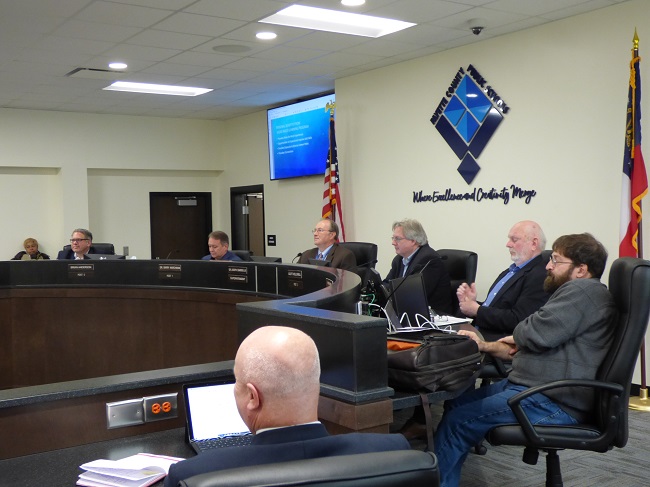On the defensive after criticism from dozens of citizens, the Fayette County Board of Education said its textbook selection committee was legally constituted, but it decided to add more than a dozen more parents anyway.
Public concerns were raised at the Feb. 24 meeting of the Fayette County Board of Education, particularly with the proposed sex education curriculum under consideration and with the composition of the textbook selection committee.
The board made the decision to add 15 more non-teaching parents at the March 9 work session.
Responding to a Feb. 24 assertion that the make-up of the textbook selection committee may not conform to state code as it relates to the number of non-teaching parents on the committee, Chairman Scott Hollowell said the school board attorney advised that the committee composition is in compliance.
Relating to other issues from the March 9 meeting, board members asked that additional non-teaching parents of students currently enrolled be added to the committee.
“We will ask approximately 15 parents to join the committee. Principals have been asked to recommend parents who are actively engaged in their schools. Invitations are being extended to those individuals, and they will be added to the current committee,” said school system spokesperson Melinda Berry-Dreisbach.
Berry-Dreisbach said it is hoped the new committee members will be in place for the next committee meeting on March 18.
On an issue dealing with the upcoming timeline for the health textbook approval so that it can be in place for next school year, the school board at the next meeting will determine if adjustments to the timeline are needed.
The clarifications at the March 9 meeting were initiated on Feb. 24 by board member Barry Marchman who said after the meeting said his intent, due to some of the public comments, was to have the board discuss those accusations to make sure there was sufficient exactness in the committee process, and to determine if any direction needed to be given to the committee.
Comments from the public questioned if the committee make-up was legal and opposed issues such as using controversial elements related to sex education and putting the committee on-hold until the new state curriculum is completed.











Leave a Comment
You must be logged in to post a comment.